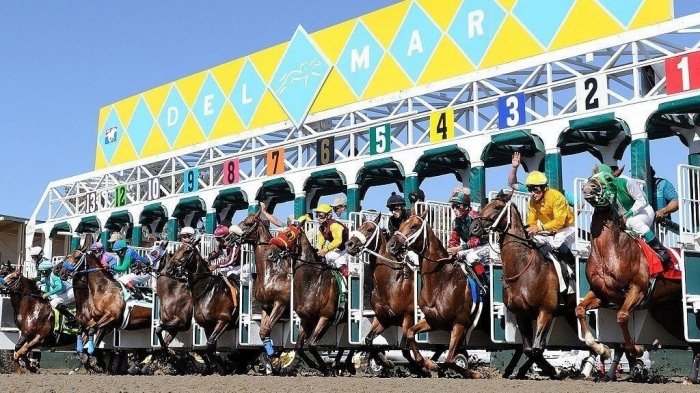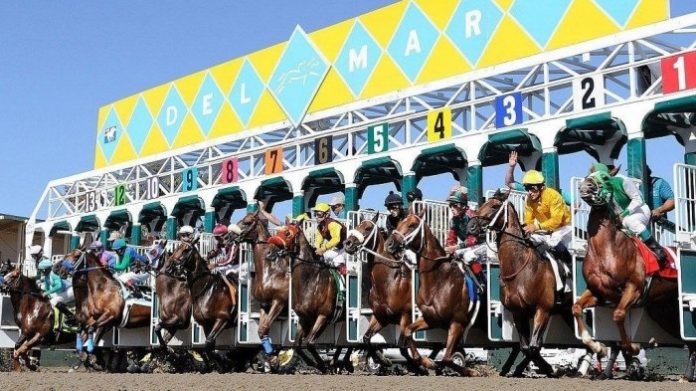
S
ports wagering for Del Mar Fairgrounds in San Diego was approved by the 22nd District Agricultural Association board of directors, which runs the fairgrounds, last week. The decision will allow betting on both professional and collegiate sporting events, but only under the condition that California voters approve it on the November 2022 ballot.
“Del Mar is the only fairgrounds in the state that would receive revenue from sports wagering under this ballot initiative,” said Josh Rubinstein, president and chief operating officer of the Del Mar Thoroughbred Club at the board of directors meeting last Tuesday.
The situation in Del Mar is unique due to the special relationship between the 22nd DAA and the Thoroughbred Club, which leases the racetrack, the viewing stands and related properties from the district, reports Los Angeles Times.
Despite the greenlighting of wagering by the board, “if the citizens of California do not legalize sports wagering, then everything we are talking about goes out the windows,” said Rubinstein. The ballot initiative to be approved was written by tribes and would authorize sports bets at tribal casinos and authorized horse racing tracks in four counties: Alameda, Los Angeles, Orange and San Diego.
According to the previously cited news source, revenue is expected to mainly come from a $2 million increase in the annual rent that the Thoroughbred Club pays the fairgrounds to host the annual racing meets, as well as food and beverage sales operated by the fairgrounds. The Thoroughbred Club, a separate entity from the fairgrounds, would hire the sportsbook operator.
While sports wagering received wide approval in the board meeting, some speakers said directors should hold out for a higher portion of the profits. However, fairgrounds officials believe time to be a key factor: without a deal, Del Mar could lose out if qualified operators sign contracts elsewhere.
Board President Richard Valdez considered the financial arrangement reasonable, saying it could be renegotiated if the venture proved successful, while Director Fred Schenk added that new sources of revenue were needed as horse racing in the US has been on decline.
Wagering operations would be conducted by a “top-tier partner”, which would do so in the Del Mar Saddle Club, a part of the Surfside Race Place that was used for off-track betting on horse races run elsewhere in the U.S. and around the world. This area was excluded from recent renovations, and according to Rubinstein necessary improvements will be paid by the operator.
Additional revenue could give the fair a much-needed hand, as the COVID-19 pandemic implied canceling the fairgrounds’ largest money-making events last year. Economic trouble also led to layoffs for more than one-third of the staff of 158 full-time employees.
“We’ve been struggling here,” said Director Lisa Barkett. “Competition is going to be tough, and we lose out if we wait.”
The November 2022 ballot to legalize sports betting is backed by a coalition of 18 tribes, which spent $11.57 million to collect 1.4 million signatures. A 10% tax would be applied to sports-betting profits at the tracks allowed to conduct operations. Moreover, federally recognized tribes in the state would be allowed to operate roulette and dice games on tribal lands, as long as tribal-state gaming compacts are negotiated with the governor and approved by the legislature.
Original article: https://www.yogonet.com/international//noticias/2021/09/20/59361-sports-betting-cleared-for-del-mar-fairgrounds-voters-must-approve-ballot














